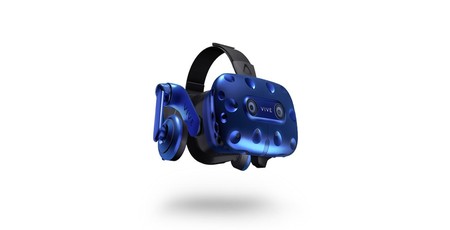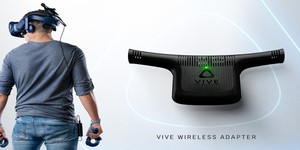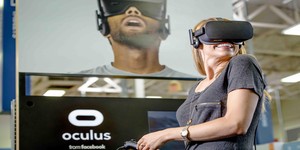HTC joins VirtualLink VR cable consortium
November 1, 2018 | 10:33
Companies: #facebook #htc #microsoft #oculus-vr #valve #virtuallink

VirtualLink, an industry consortium founded with a view to replacing the multiple cables required to run a tethered virtual reality (VR) headset with a single USB Type-C cable, has finally signed up Vive creator HTC.
When the VirtualLink consortium announced its founding back in July, it came with a healthy list of virtual reality industry behemoths: In addition to Facebook-owned Oculus VR, almost single-handedly responsible for relaunching VR as a consumer product, its founding members included graphics companies AMD and Nvidia, game publishing and distribution giant Valve which brought its Steam VR platform to the mix, and Microsoft with its own Windows Mixed Reality standard. All pledged to implement the VirtualLink specification, which uses the Alternate Mode function of the USB Type-C standard to throw four DisplayPort High Bit-Rate 3 (HBR3) lanes, a single USB 3.1 data channel, and 27 watts of power through one USB Type-C cable to a tethered VR headset.
The list of companies involved, though, was missing one major name: HTC, whose Vive platform is Oculus VR's biggest competition in both the self-contained stand-alone and PC-tethered virtual reality headset categories. With HTC working hard on developing low-latency wireless connectivity solutions for its VR headsets, it was questionable as to whether it would ever be involved - but that question has now been answered in the affirmative by HTC's delayed membership.
'At HTC, we strive to make the best VR experience with crisp resolution, audio, and ergonomics for our customers,' claims HTC Vive general manager Daniel O'Brien of the partnership. 'Through our work with VirtualLink, we are working to define not only a connection standard for future VR products but are also undertaking important work to help to define the future of what VR can be.'
The VirtualLink standard, however, requires support at both ends of the cable: While the first compatible graphics cards have begun to hit the market, in the form of Nvidia's GeForce RTX family, no consumer VR headset yet includes VirtualLink connectivity, and Microsoft, Oculus, and now HTC are all silent on when that might change.

MSI MPG Velox 100R Chassis Review
October 14 2021 | 15:04








Want to comment? Please log in.